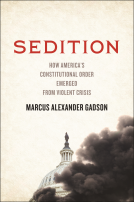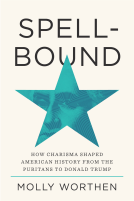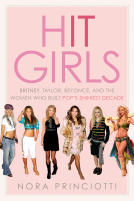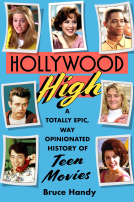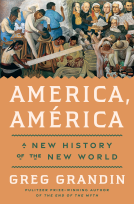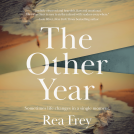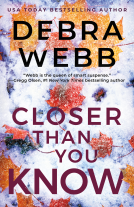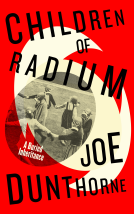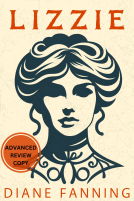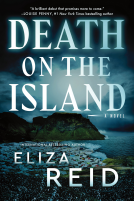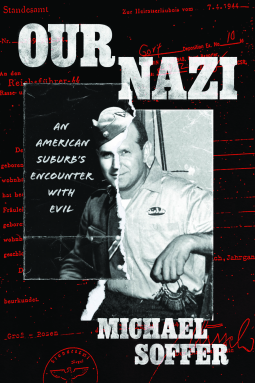
Our Nazi
An American Suburb’s Encounter with Evil
by Michael Soffer
This title was previously available on NetGalley and is now archived.
Send NetGalley books directly to your Kindle or Kindle app
1
To read on a Kindle or Kindle app, please add kindle@netgalley.com as an approved email address to receive files in your Amazon account. Click here for step-by-step instructions.
2
Also find your Kindle email address within your Amazon account, and enter it here.
Pub Date Oct 02 2024 | Archive Date Sep 05 2024
Talking about this book? Use #OurNazi #NetGalley. More hashtag tips!
Description
Reinhold Kulle seemed like the perfect school employee. But in 1982, as his retirement neared, his long-concealed secret came to light. The chief custodian at Oak Park and River Forest High School outside Chicago had been a Nazi, a member of the SS, and a guard at a brutal slave labor camp during World War II.
Similar revelations stunned communities across the country. Hundreds of Reinhold Kulles were gradually discovered: men who had patrolled concentration camps, selected Jews for execution, and participated in mass shootings—and who were now living ordinary suburban lives. As the Office of Special Investigations raced to uncover Hitler’s men in the United States, neighbors had to reconcile horrific accusations with the helpful, kind, and soft-spoken neighbors they thought they knew. Though Nazis loomed in the American consciousness as evil epitomized, in Oak Park—a Chicago suburb renowned for its liberalism—people rose to defend Reinhold Kulle, a war criminal.
Drawing on archival research and insider interviews, Oak Park and River Forest High School teacher Michael Soffer digs into his community’s tumultuous response to the Kulle affair. He explores the uncomfortable truths of how and why onetime Nazis found allies in American communities after their gruesome pasts were uncovered.
Available Editions
| EDITION | Other Format |
| ISBN | 9780226835549 |
| PRICE | $25.00 (USD) |
| PAGES | 296 |
Available on NetGalley
Featured Reviews
 Chloe Z, Reviewer
Chloe Z, Reviewer
I am very grateful to UChicago Press and NetGalley for allowing me to access a digital copy before the book is published. Before I offer my honest review, I wonder what the intended audience is for this book. As someone with an academic background in German history, I skimmed through the first few chapters which outlined Reinhold Kulle’s life in Europe before emigration to America. My years spent in Chicago also allowed me to appreciate the Chicago vignettes of and references to different neighborhoods. My background and experience meant that before I picked up the book, I was already invested in the story, both as a historical-biographical account and one understood through a microhistory lens.
As much as this book is about a Nazi’s immigration to, integration in, and eventually, deportation from the United States, it is also inherently and intimately a story about American suburban life. The central theme I pondered throughout, to which the book provided an answer for, centers around empathy. How much empathy can we show Kulle? How, and if, can we distinguish individual agency from the grand scheme of inhumanity? And how much can criminal justice account for political violence? How to recognize and reconcile the definitiveness and volatility in the victim-perpetrator paradigm? By putting them on trial, are we actually “bringing Nazis to justice” or eliding the political accountability by focusing on the individual?
For the most part, I could extend radical empathy to Kulle and his longing for home, especially on his account that the Germany before and after the war made his definition and reminiscence of home difficult, and even impossible. I was hugely engrossed by Kulle’s testimony at the trial and his subsequent appearance at the school board meeting, which, upon hearing that his only regret was the fact that Germany did not win the war, my opinion of him cannot help but sway.
There are other works out there that discuss to what extent individual Nazis should be held accountable for the crimes of the Third Reich, but Our Nazi by Michael Soffer, at least what I found the most interesting, discusses Kulle’s life in Chicago, a place where he had established another life for many decades. In particular, the community reaction to the Kulle case illuminates all perspectives on the spectrum, from total forgiveness and acceptance to advocacy for complete ostracization and immediate deportation.
On a very personal level, Michael Soffer has inspired my confidence in a career as a high school history teacher, which has been his position at the Oak Park and River Forest High School for almost two decades. Besides, his acknowledgement section is just so sweet. It makes me so happy for him for publishing this work!
It's like Stanley Millgram's Dead Poet's Society.
The core of Our Nazi is a description of the deportation trial of Reinhold Kulle. Kulle was a Nazi soldier, a member of the SS with an airquotes distinguished war record on the eastern front and subsequently a guard at the Gross-Rosen concentration camp. The trial was interesting from a legal perspective as arising out of a new law regarding former Nazis, as unlike a lot of others, Kulle had not lied on his immigration papers, nor was any foreign power looking to extradite him, so the trial was Nurenburg Lite, where his defense amounted to proving that, while he was a Nazi, he wasn't one of the bad ones.
The trial, however, is not the full narrative. The real story here is that Kulle was a custodian of long service at a high school in Oak Park, Illinois. Oak Park is a suburb of Chicago, and number two on the list of suburbs that people from Chicago make fun of. It is a place so liberal that even the highway exits are on the left. It is here that Kulle worked as a custodian, becoming a beloved institution at the school due to his demanding standards of work and volunteering his time to help others succeed. It was a shock when his history came out.
You might assume that this would come as a shock to the community, and rightfully a few were shocked. Most didn't care. Or made excuses for him. Or misunderstood what was going on, somewhat dramatically in the case of the major newspapers. This included administrators quite literally standing with neo-Nazis rather than Holocaust survivors at his trial so as to stand beside Kulle.
The book is superb. The writing is clear, and the author makes deft structural choices, such as in telling what we know of Kulle's history as woven together with the histories of survivors from the camp where he worked. It is meticulously sourced, and passes my citation test so utterly that I would name it after the author if I did that sort of thing. The tone is not sensational, but it does tend towards the breathless, but in the end, I felt this wholly justified by the story of the facts. Which is to say that this is the sort of book you will spend the fortnight after reading looking to grab people by the lapels and say 'hey, you have to hear this story.'
One of the most affecting choices is to focus on the students at the school, which belies the author's job as a high school history teacher, but is justified. The students here often feel like the only proverbial adults in the room. And I love the author's style in general. It would be wrong to call it apolitical, (aside from a bit on Regan administration policy, which admittedly I was not aware of and was interesting to learn), but Soffer understands that he does not need to amp up the rhetoric. Even as his own positions on things is not in doubt, he can let a unadorned statement of the facts speak for themselves.
It is the best sort of history, in how it feels like nothing has changed but everything has changed, how you can note all the ways this would play out differently but also how it reflects all the same problems. The ending could be unsatisfactory in the way that real life often is, but Soffer nails it in an epilogue about other, more recent looks at the story. Overall, it is an impressive book, and I hope the author writes more of them.
(Links to be added upon posting closer to publication)
 Katie H, Reviewer
Katie H, Reviewer
Our Nazi: An American Suburb’s Encounter with Evil describes the life of Kulle, an SS soldier. It begins with his life in the Hitler Youth, moving onto his time working in concentration camp, then his escape to America where he, his wife and child became American citizens where nobody knew of his cruel history. When his past becomes public knowledge and a trial begins, the reactions of the people are disturbingly unexpected.
Our Nazi is written fairly comprehensively and the pace is fast, making for easy reading. It started out as a high school history lesson and, as the students became more interested in the story, it developed into the book it is now. It is not an incredibly detailed historical book but it does well to explain the series of events, their start points and their impacts, in an easily understandable manner.
This book brings history into one's front door (or, in this case, the school house door). There are a lot of books written about the escape and subsequent evasion of former third reich personnel, but this books stands apart. There is a mix of scholarship and memoir here that makes it readable, intriguing, and academic in scope. It's unsettling; it makes us question who the ordinary people are, who come in and out of our lives, and what stories they hold inside. I kept wondering who I have crossed paths with who has a story they don't want let out.
I also feel this book is a great meditation on the banality of evil (Arendt). For when someone has grown to accept their actions, and the wider actions of a regime or group of people, there develops a moral quandary about how to do with it (as well as how those who encounter the perpetrators should also react). This book raises a lot of introspective, moral questions about the communities we keep, the members of them, and how we respond to others' pasts.
 Cindy P, Reviewer
Cindy P, Reviewer
What would you do if you found out your close friend or colleague was in the SS? Not just a conscripted soldier, most German men had no choice; but a soldier who fought to get into the killing branch of the SS. I know what I would do but even in these times I was still amazed to read how easily so many people can forget and push aside horrors that had happened less than 40 years prior.
I only read a few non fiction books each year (that aren’t business related). If I finish them it usually takes me weeks. I read Our Nazi in 24 hours! It’s the fastest paced non fiction book I’ve ever read. It starts with the subjects upbringing and his path to joining the SS. This is not a history book of the Holocaust although it does include some facts to provide the setting for the rest of the story. It is primarily the story of one nazi who built a family and life in a suburb of Illinois while working at Oak Park River Forest High School for over 20 years. It also provides information about other nazi’s living around the US, beyond those involved with Project Paperclip. This is a very well written book that I highly recommend.
Thank you to NetGalley for providing me with an early release in exchange for a fair and honest review.
 Ellen C, Media/Journalist
Ellen C, Media/Journalist
This is an excellent book that explores the true case of a high school janitor / facilities manager whose secret past becomes the source of angst, outrage and division in Oak Park, a Chicago suburb better known for its Frank Lloyd Wright homes and reasonable commute to the Loop than for its struggle to wrestle with a well-liked man's ugly past. Great research & pacing.
 Librarian 269868
Librarian 269868
This is a chilling and meticulously researched account of how the insidious presence of a Nazi sympathiser infiltrated a seemingly ordinary American suburb. Soffer draws readers into a disturbing chapter of history, painting a vivid picture of the profound impact one man's extremist ideology can have on an entire community. This is a captivating and thought-provoking read.
Our Nazi by Michael Soffer is a heart crushing and infuriating true story about (in)justice, humanity and deception. A former decorated SS Nazi illegally immigrated to Chicago from what was then East Germany, got a respectable job and made a life amongst his neighbours and community. They would never in a million years have dreamed he had been a barbaric Nazi who rose through the ranks, not by force but with ambition and pride.
Reinhold Kulle put his past as a Nazi camp guard at Gross-Rosen where Nazis were rewarded for each murder behind him and obtained a respectable job in a school in Chicago as chief custodian who cared about the security of the students. As an East German "refugee", his life was above reproach, he worked hard and was kind. When his history came to light, most didn't believe it or shrugged it off. The Holocaust was years ago, after all. Many actually felt misplaced empathy for him rather than for traumatized victims who testified against him. How despicable to learn of the fundraiser!
Like other war criminals, he had both enemies and allies. Also like others, Kulle got away with horrific actions. Tragically, of the estimated million Nazi participants, very few were brought to justice, and rarely paid seriously. That fact burned in my heart as I read this tragic story.
Our Nazi is extremely powerful and emotive. Kulle and his wife sought and obtained proof they were Aryan and therefore supreme. Life in America seemed to be satisfactory for them and those around them. The millions of lives lost and dramatically altered forever at the behest of the likes of Reinhold cannot be forgotten. Ever. Books such as this should be mandatory reading, lest we forget.
My sincere thank you to University of Chicago Press and NetGalley for providing me with a digital copy of this powerful and captivating book.
 Reviewer 1379767
Reviewer 1379767
Ever since I visited the Holocaust Museum in D.C. (way back in high school so about 20+ years ago) I was shocked and in awe as to what I saw and learned there. That was the day that started my obsession with historical fiction books (fiction and nonfiction) set in the Holocaust times.
This book absolutely devastated me. This is a heartbreaking but eye-opening book that shows how evil people can be to other people. It also shows how the evil continues even to this day. This book had me hooked from the very beginning and I couldn't put it down until it was over because I just had to know what happened next. When I finished the book, I was speechless, had tears in my eyes, and had to pick my jaw up from the floor.
I think this book would be great for a social studies/history class. I think this should be read as a group and then have a discussion about it once the book is finished. I also think that this book should be read in every school so that future generations know just how bad people were treated in the past - all because they didn't look the way certain people wanted them to look.
5/5 stars for sure
Fascinating. A powerful and impeccably researched account of one former Nazi's relocation to Chicago in the post-war period. Stories such as this are vital in helping us understand the 'banality of evil' and our reckoning with it, both in past and present contexts. Complex, shocking and stranger than fiction, this is a fantastic read for any history or sociology lovers.
